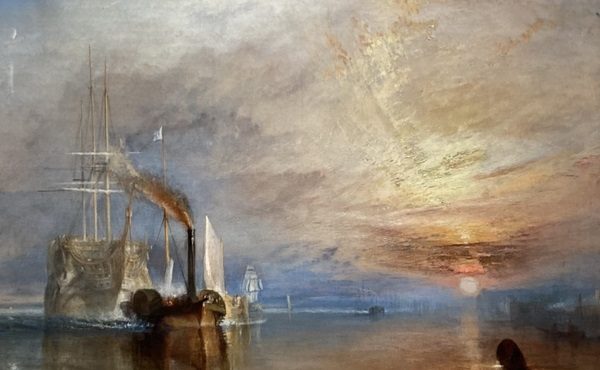Podcast: Play in new window | Download (10.1MB)

All this week, Spacing Radio is taking a closer look at the impact of the G20 Summit on our public spaces. But before going any further, we try and figure out what happened leading up to the G20. Today we talk to Toronto Councillor Adam Vaughan – one of the first Torontonians to find out we’d be hosting – about how and why our city was chosen as the venue.
Links to stuff from Spacing Radio’s G20 Special, pt. II:
- City of Toronto: Councillor Vaughan (Ward 20, Trinity – Spadina)




3 comments
Thank you so much, that interview clears up so much confusion surrounding why the security force was so heavy-handed, they were over-compensating for lack of planning time due to the proroguing of parliament.
Finally some light on the background of that unfortunate weekend experience (which is not unique in Canada – see Quebec, Montréal, Ottawa earlier this decade).
While I appreciate Adam’s statements and the context he provides I’m still not sure why constraints of his secondary role (TPS board member) trumped the obligations of his primary one (elected representative).
He wasn’t saying enough of this stuff, making clear that things weren’t, when we needed him. If that meant stepping down or recusing himself from TPS so that he coud speak to and on behalf of Toronto (and more broadly Canadians) he should have.
As for the Toronto the Colony bit, reminder that some colonies have historically risen up against the colonialist.
Councillor Vaughan is a well-known left-winger on Toronto City Council, with a well-known dislike for Prime Minister Harper and the Conservative federal government. Given this fact, as well as Vaughan’s vocal discontent at the G20 summit being hosted in his riding, anything he says about the summit needs to be taken with a grain of salt. I would also point out, as Vaughan admits in the interview, that as a lowly city councillor in a country where cities are not separate legal entities but rather wards of the province, that he is hardly in a position to offer any gospel truths about the decision-making in the lead-up to the summit. It is, in fact, ridiculous for a city councillor to be accorded any special authority to talk about what went on behind the scenes when the summit arrangements were handled at the federal and provincial levels, and anything he claims is merely idle speculation which any of us ordinary people are capable of offering. The Toronto Police Service, as the law enforcement agency of jurisdiction, had a stake in the security arrangements for G20, as did the OPP, but the lead agency for major domestic security events in Canada is the RCMP, under the Department of Public Safety in Ottawa. These agencies all worked together very well, by all accounts, especially in light of the experience gained during the Vancouver Olympics which used the same security command and control arrangements (the ISU). Yes, some mistakes were made, but that is a consequence of our police forces fortunately not having a lot of experience in dealing with mass riots on our streets and also the sheer number and variety of law enforcement agencies involved. Vaughan’s comment about the effect of the proroguing of Parliament is completely misleading and inaccurate, as everyone knows that governments continue to function even during times when the elected officials are not sitting–whether that be as a result of a prorogue, a summer recess, an election, whatever. The civil servants who actually run the functions of government and deliver services continued to work throughout the prorogue and, given the high profile accorded to the summit by the Prime Minister and his strong desire to showcase Canada and avoid embarrassments, it is simply foolish to suggest that Mr. Harper would have consented to a three-month hiatus in summit planning. Rather, once the political decision is made as to where the summit will be held, all of the preparations are handled at the staff level, between civil servants tasked with executing the mission, and so the prorogue is not to blame as Mr. Vaughan alleges. The fact of the matter is that there are few places in Canada that can accomodate the size of the delegations for a G20 summit, which involves not just the 20 most important states but also various NGOs and international organisations like the UN and the EU. If the G20 is going to be the new foremost international gathering of states, then inevitably it is going to have to be held in major cities where there are sufficient hotel rooms to house everyone–like Toronto. Indeed, the days of a quiet fenced-in resort hotel hosting these summits are gone. I regret if some Torontonians were inconvenienced for, say a week, by the erection of the security fences and the summit itself, but life is back to normal now and, in the greater scheme of things, it was a minor blip for Toronto. When we consider the regular shootings reported in the local news, and even the violence and killings seen during past Caribana festivals, the Toronto G20 summit and its record of not a single police or protestor fatality can be measured as a success. Mr. Vaughan is certainly entitled to his beliefs and theories, but he was never in a position to comment with any authority on the background leading up to the decision to host the G20 in Toronto, and his comments are necessarily coloured by his own political biases. This interview was nothing more than an opinion piece by one disgruntled municipal politician with a chip on his shoulder and a pre-existing axe to grind with the Tory government in Ottawa.